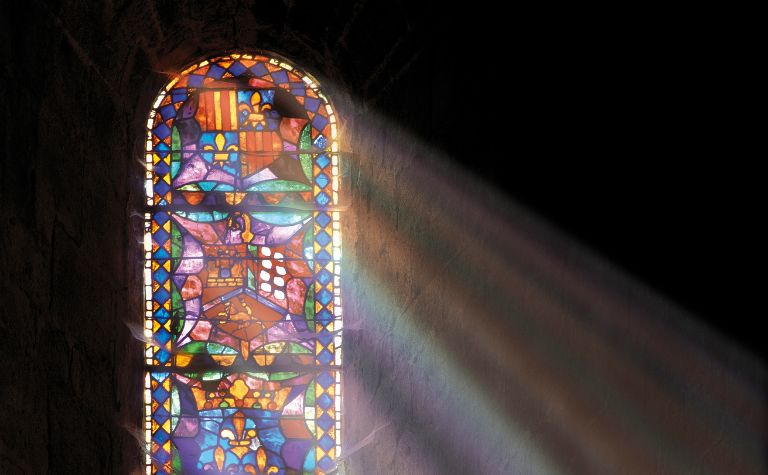Many people have heard of Pentecostal and Reformed churches but don’t know much about their similarities and differences. Because both faith traditions are Christian, they have overlapping beliefs and practices. Yet there are also essential contrasts between them because each has distinct origins, histories, leaders, convictions, and expressions.
Pentecostal and Reformed churches, and those who lead and attend them, are Protestant. Reformed Christianity started in 16th-century Europe, while Pentecostalism began in early 20th-century America. The traditions have different beliefs about salvation, the Holy Spirit, and the end times.
Where do the terms “Pentecostal” and “Reformed” originate? How are their histories similar? Are they conservative or liberal traditions today? How do their beliefs about God, Jesus, the Bible, the Holy Spirit, and the end times compare? Keep reading to learn the answers to these questions and others.
Also, see What’s the Difference Between Pentecostals and Baptists? to learn more.

What’s the Difference Between Pentecostal and Reformed?
Though Pentecostalism started over a century ago and Reformed Christianity is over 500 years old, they both belong to the Protestant branch of the faith.
This similarity means that many of the ideas each tradition embraces are rooted in the Protestant Reformation, led by Martin Luther of Germany (1483-1546), Ulrich Zwingli of Switzerland (1485-1531), and John Calvin of France (1509-1564).
Pentecostalism traces its history to the Protestant Reformation in England. Methodism, under the leadership of John Wesely (1703-1791), grew out of the Protestant churches in England.
Later, the 19th-century Holiness movement was born out of Methodism. Then, early in the 20th century, many of the first Pentecostals emerged from the Holiness movement.
| Pentecostalism | Reformed | |
|---|---|---|
| Founder | Pentecostalism doesn’t have a single founder, but Charles Parham (1873-1929) and William Seymour (1870-1922) played important roles. | Denominations, churches, and Christians following the teachings of pastor, author, and theologian John Calvin (1509-1564) are called Reformed. |
| Origin | Historians conventionally date the origin of the modern Pentecostal movement to the Azusa Street Revival in Los Angeles, California, in 1906. | Luther influenced all reforms, but others had an impact outside Germany. Calvin influenced reforms in France, Scotland, and many other places. Ulrich Zwingli (1484-1531) influenced reforms in Switzerland. |
| Name | The word “Pentecostal” comes from the word Pentecost, which describes the unique and powerful outpouring of the Holy Spirit upon the early church, as recorded in Acts 2. | “Reformed” refers to reforms made in reaction to alleged errs in doctrine and practice in the Catholic church. People also use the term to distinguish between Calvin’s reforms and Lutheran and Anabaptist ones. |
| Early contributors | In addition to Parham and Seymour, Agnes Ozman (1870-1937) was an important early contributor. | In addition to Calvin and Zwingli, Scottish minister John Knox (1514-1572) significantly influenced the Reformed Church’s early history. |
| Pentecostalism | Reformed | |
|---|---|---|
| Important literature | Pentecostalism doesn’t have unique literature that is significant to establishing the tradition. The closest document is the 16 Fundamental Truths of the Assemblies of God denomination. | Calvin’s The Institutes of the Christian Religion; The Westminster Confession of Faith (1646); the Heidelberg Confession of Faith (1563), the Belgic Confession of Faith (1559), and the Canons of Dort (1618-1619) |
| Divisions | Pentecostalism has many expressions. The largest denomination is the Assemblies of God. | Some Reformed traditions follow Calvin more closely than others. Presbyterianism is the most prominent Reformed tradition, which has seen significant division over theological and social issues in recent decades. |
| Organization | Pentecostalism isn’t a denomination but a belief system that certain denominations hold. Pentecostal churches tend to be congregational in their church government. | Some Reformed churches are congregational. Presbyterianism rejects a bishop-led rule. Instead, Calvin encouraged a council of clergy to oversee a region and a consistory (or “council”) to oversee a local church. |
| Theological and Social worldview | Pentecostal denominations and churches tend to be conservative theologically and concerning social issues. | It depends on the denomination. For example, the Presbyterian Church USA (PCUSA) welcomes liberal views, while the Presbyterian Church in America (PCA) maintains conservative positions on theological and social matters. |
Also, see What’s the Difference Between Pentecostals and Charismatics? to learn more.

Pentecostal and Reformed Beliefs about the Bible and God
As Protestant Christians, Pentecostalism, and Reformed Christianity embrace the authority of the Bible for establishing doctrine and living holy lives. The traditions agree on the core tenants of the Christian faith.
| Pentecostalism | Reformed | |
|---|---|---|
| Bible | Pentecostals believe God inspired the biblical authors. Additionally, most pastors and theologians embrace the terms “inerrancy” and “infallibility” to describe the nature of the text. | Historically, the Reformed tradition champions the inspiration of Scripture. Many conservative, orthodox, Reformed believers use terms like “inerrancy” and “infallibility.” |
| God | Pentecostals believe in the Trinity; God is three persons in one: Father, Son, and Holy Spirit. | Reformed Christians believe in the Trinity like other Protestant believers because they are convinced that the Bible clearly teaches the doctrine. |
| Jesus | Pentecostals believe Jesus was 100% man and 100% God. He was born to a virgin, lived a sinless life, died on the cross for sin, and rose three days later. | Reformed Christians fully subscribe to the incarnation, virgin birth, sinless life of Christ, and his physical resurrection from the dead. |
| Atonement | The Pentecostal tradition affirms the penal-substitutionary view of Christ’s atonement. | The Reformed tradition also embraces the penal-substitutionary atonement of Jesus’ death. |
| Salvation | Pentecostals are Arminian. However, some Reformed or Calvinist Christians believe in Pentecostal expressions of the Holy Spirit. | Following Calvin, Reformed theology teaches that God implants faith into a person’s heart so they can respond to the gospel. God unconditionally elects people for salvation and dispenses his grace to sinners, which they cannot resist. |
Also, see What’s the Difference Between Pentecostals and Roman Catholics? to learn more.

Pentecostal and Reformed Beliefs about the Holy Spirit and More
A central belief for Pentecostals is that baptism in the Holy Spirit occurs sometime after conversion. However, like other non-Pentecostal Christians, those in the Reformed tradition believe it happens at conversion.
Another central belief for Pentecostals is that speaking in tongues is the initial evidence of being baptized in the Holy Spirit. Yet, most Reformed Christians don’t believe it’s the only evidence because they don’t believe the Bible teaches that view and because tongues are no longer operational today.
Pentecostals also affirm the present-day use of so-called miraculous gifts like healing, words of knowledge, speaking in tongues, and interpreting tongues. Reformed Christians believe God heals people today but doesn’t do so through a person designated with the gift.
| Pentecostalism | Reformed | |
|---|---|---|
| Holy Spirit | Pentecostals believe the Holy Spirit is the third person of the Trinity. He is a person, not a force, and is fully divine. | Reformed Christians have the same core beliefs about the person of the Holy Spirit as Pentecostals. A few embrace Pentecostal beliefs and practices. |
| Sanctification | Some Pentecostals believe that sanctification can be perfected in this lifetime, though the largest denomination, the Assemblies of God, doesn’t. | The Reformed tradition teaches that perfection in sanctification occurs at death for Christians. |
| Lord’s Supper | Pentecostals believe the bread and the cup are memorials of Christ’s death. They don’t believe Christ is present in the elements in any way. | Most Reformed Christians believe Christ is spiritually present in the bread and cup. The elements aren’t merely symbols or reminders. |
| Baptism | Pentecostals practice “Believer’s Baptism” as opposed to infant baptism. Baptism isn’t required for salvation. | Reformed churches practice “paedobaptism” (paedo = “child”), also known as “infant baptism” through sprinkling. Adults can be baptized if they never were as a child. |
| End Times | Pentecostalism is premillennial, meaning it interprets the 1,000-year period literally. The millennium occurs after the rapture, the seven-year tribulation, and the Second Coming. | Most Reformed believers are Amillennial. They believe the 1,000-year period described in Revelation 20:1-6 occurs between Christ’s first and second coming. |
Three Uses of the Term “Reformed” in Christianity
(1) “Reformed” means not Catholic: Some people use the term “Reformed” to refer to Christian traditions in the West that are distinct from Catholicism.
The “Protestant Reformation” refers to the 16th-century movement in Europe that protested abuses in the Catholic church. In this use, “Reformed” describes any tradition or denomination born out of the Reformation, like Lutheran, Presbyterian, and Anabaptist.
(2) “Reformed” means not Lutheran or Anabaptist: The term “Reformed” in some Protestant contexts refers to traditions born out of the Reformation that are neither Lutheran nor Anabaptist.
While this use of the word primarily refers to the teachings of French Reformer John Calvin (1509-1564), it can refer to the teachings of Swiss Reformer Ulrich Zwingli (1484-1531), which are similar (e.g., predestination) but have differences (e.g., ecclesiology).
(3) “Reformed” means Calvinism: Many people use the term “Reformed” as a synonym for Calvinism. Others use it as a synonym for Presbyterian because of its Calvinist theology. There are contexts in which distinctions should be made.
For example, a “Reformed Baptist” church is not Presbyterian but combines Calvinist theology with a congregational, rather than elder-led (i.e., presbyterian), form of church government.
Also, see What’s the Difference Between Pentecostals and Lutherans? to learn more.
References:
[1] Source
[2] Source
Related Questions
Pentecostalism vs. Charismatic Movement: What's the Difference?
Many people know that the terms "Pentecostal" and "charismatic" are associated with certain beliefs, churches, and people in modern Christianity but aren't sure how they compare. Although the terms...
Roman Catholicism is one of the three historical branches of the Christian religion, Protestantism and Eastern Orthodoxy. On the other hand, pentecostalism is one of the fastest-growing movements in...
